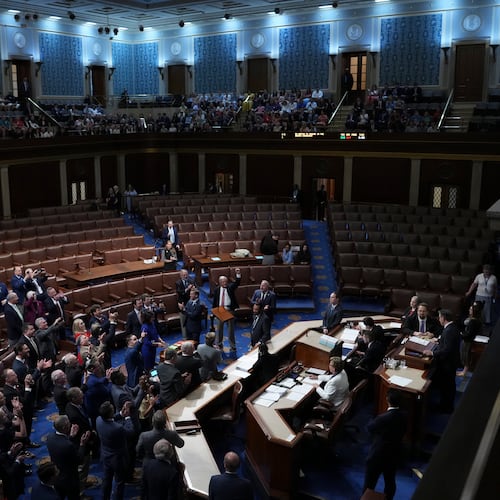Unemployed workers cannot find jobs that don’t exist. Our state needs to have an informed discussion that addresses unemployment and starts with the facts.
Georgia is facing historic levels of unemployment with more than 460,000 workers seeking employment — nearly twice as bad as the last recession. In the South there are nearly five times as many unemployed workers as there are job openings. Meaning that for four out of five unemployed workers, there simply are no jobs.
Georgia needs more than half a million jobs to get back to its pre-recession levels. In the past five months, Georgia added only 22,000 jobs.
At this rate it would take almost 10 years to create the needed jobs.
Let’s also be clear about unemployment benefits. The unemployment insurance system covers only eligible workers who are unemployed through no fault of their own.
Translation, it’s for your family and friends who were laid off due to lack of work. For each week that laid-off workers receive unemployment payments, they must actively seek employment.
Weekly unemployment payments in Georgia average $270 per week, only replacing about one-third of an average worker’s weekly wage. What family would volunteer to live on one-third of their income?
In fact, the average payment is less than a minimum-wage worker makes in a 40-hour work week.
Current rhetoric suggests that all jobless workers today can receive 99 weeks of unemployment benefits. That is not correct in many cases. Regular state unemployment payments cover a worker for up to 26 weeks, but the average Georgia worker is receiving payments for about half of that time.
Workers who do not qualify for the full 26 weeks of state unemployment payments also do not qualify for the full 73 weeks of federal unemployment payments. Simply put, workers who qualify for less than the full 26 weeks of state benefits will not receive all 99 weeks.
Another assertion is that low-wage workers have a greater incentive to remain on unemployment and not seek another job. This would make sense if they qualified for the maximum payment and for the maximum number of weeks; however, low-wage workers are less likely than higher-wage workers to ever receive unemployment payments.
Low-wage workers are also the least likely to have savings to cushion a spell of unemployment, so are more vulnerable to foreclosure or eviction — pretty big incentives to find a new job.
Nonetheless, let’s remember that unemployment payments have a positive impact on small businesses in communities. Because of unemployment benefits, laid-off workers can continue to pay rent, buy groceries and raise children, helping to fuel the local economic engine. In 2009 unemployment payments lifted an estimated 3.3 million people in the U.S. out of poverty, including 1 million children.
Georgia’s discussion on unemployment should be focused on getting our unemployed workers back to work by creating more jobs, investing in education and training, and providing temporary assistance, in the meanwhile.
We can start by supporting Georgia Department of Labor Commissioner Mark Butler, who said that the primary focus of his agency needs to be “getting people connected back to a job.”
Otherwise, obtaining employment will remain a game of musical chairs in which four out of every five unemployed workers are left standing when the music stops.
Clare S. Richie is a senior policy analyst with the Georgia Budget & Policy Institute.
About the Author
Keep Reading
The Latest
Featured


